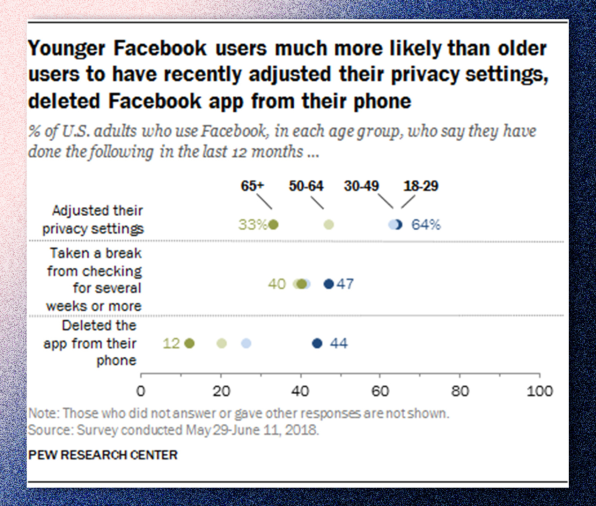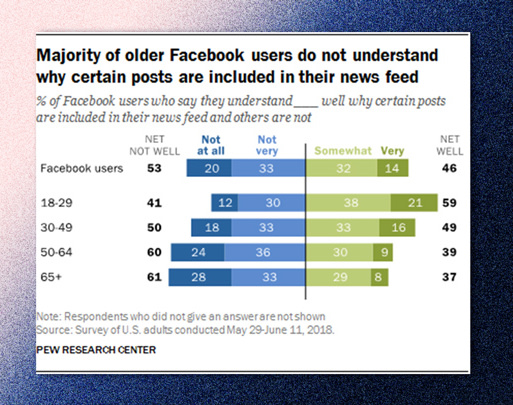44% of people aged 18 to 29 said they deleted the Facebook app from their phones in the last year, according to new research from Pew.
After a year of revelations about how Cambridge Analytica collected data on tens of millions of users and Russia influenced public sentiment with alt-right propaganda on Facebook, the social network is in trouble.
According to two new studies from Pew Research that each polled 4,594 Facebook users, young people are the most likely users to abandon the social network. And at the same time, young people are actually the most likely group to use Facebook’s privacy settings and understand how the company’s algorithmic news feed works. In other words, while this connection is correlational rather than causal, the demographic who understands Facebook the best is opting to ditch the service most often. At the same time, the older population sticking loyally with Facebook is, unfortunately, the same age as people who tend to know less about how it works.
In study one, 44% of young people (age 18 to 29) said they deleted the Facebook app from their phones in the last year. That’s almost four times the rate that users 65 and older deleted Facebook. “Similarly, older users are much less likely to say they have adjusted their Facebook privacy settings in the past 12 months,” Pew explains. “Only a third of Facebook users 65 and older have done this, compared with 64% of younger users.”

In study two, 59% of young people reported that they understood “somewhat” or “very” well why certain posts were included in their News Feed while others were not. Only 37% of people over 65 could say the same thing. The numbers weren’t much better for anyone over 50. Younger people also generally felt more able to shape what they were able to see in their news feed, and were more likely to have made some attempts to influence it somehow (by unfollowing certain groups or organizations, or changing ad preferences).

A whopping 70% of people who had tried to influence their feed had made changes to their ad and privacy settings. Tellingly, Pew also notes that of about 10% of people who downloaded their data from Facebook, about half deleted the app entirely, and almost 80% changed their privacy settings. It seems that once people understand what kinds of data Facebook tracks, they seem to change their behavior.
If we know that young people are the most likely to understand how Facebook’s algorithms may work, and also the most likely to delete the service, what does that mean for the company’s future?
Facebook, for its part, has been edging toward transparency with some new tools that allow people to change privacy settings and delete their data. But such tools may not be convincing people who are concerned about the platform’s practices to stay. And the older people who stick with the platform may need more help understanding how its News Feed and other features really work. As the most lucrative users–those advertiser-coveted young people–are most likely to flee first, the only way to fix Facebook may be to actually fix Facebook.
–
This article first appeared in www.fastcompany.com
Seeking to build and grow your brand using the force of consumer insight, strategic foresight, creative disruption and technology prowess? Talk to us at +9714 3867728 or mail: info@groupisd.com or visit www.groupisd.com




